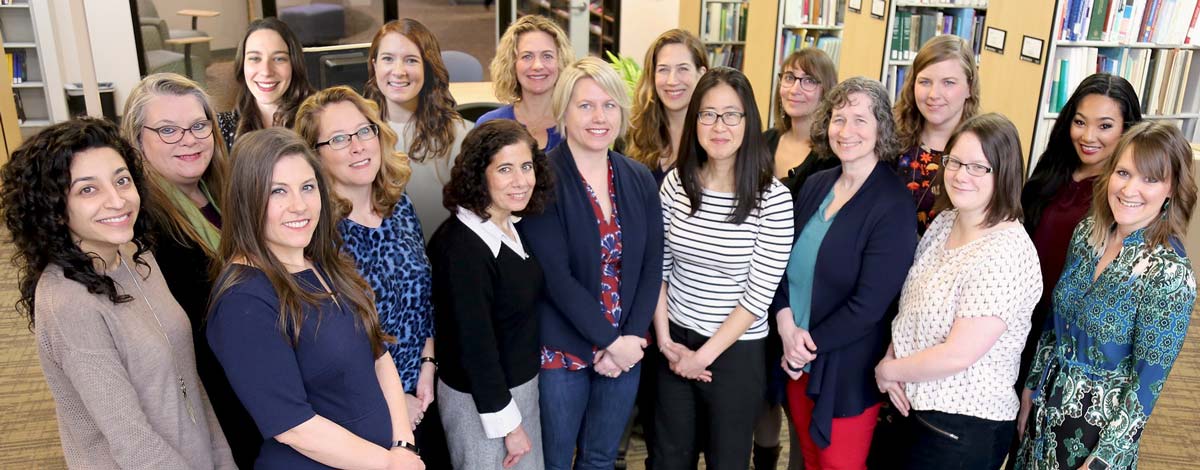 Front Row: Beth Webber, Debra Burch, Cory Evans, Erin Coppola, Jennifer Lin, Nadia Redmond, Allea Martin, Leslie Perdue, Carrie Patnode
Front Row: Beth Webber, Debra Burch, Cory Evans, Erin Coppola, Jennifer Lin, Nadia Redmond, Allea Martin, Leslie Perdue, Carrie Patnode
Back Row: Sarah Bean, Melinda Davies, Jillian Henderson, Tracy Berntsen, Elizabeth O’Connor, Caitlyn Senger
Not Shown: Paula Blasi, Michelle Eder, Janelle Guirguis-Blake
The Kaiser Permanente Evidence-based Practice Center (KP EPC) is one of 9 centers nationwide to be designated as an official EPC by the federal Agency for Healthcare Research and Quality (AHRQ).
The EPCs synthesize available scientific evidence on health care topics by conducting evidence reports, including systematic reviews, comparative effectiveness reviews, technical briefs, technology assessments, modeling, and decision-analyses. These evidence reports are used to guide health care decision-making by clinicians, patients, policymakers, researchers, and payers. The EPCs also conduct research to advance the methodology of systematic reviews.
The KP EPC involves a large network of researchers from the Kaiser Permanente Center for Health Research and Kaiser Permanente Washington Health Research Institute. The KP EPC is headquartered in Portland, Oregon at the Kaiser Permanente Center for Health Research and directed by Jennifer S. Lin, MD, MCR.
Investigators at the Kaiser Permanente EPC have extensive experience in key cross-cutting areas, such as conducting complex systematic reviews in preventive services, behavioral interventions, and medical test evaluations, as well as focused expertise in methods development. Our investigators have completed systematic reviews or methods-related projects for many groups, including the Effective Health Care Program, the U.S. Preventive Services Task Force (USPSTF), the Centers for Disease Control and Prevention (CDC), the National Cancer Institute (NCI), Patient-Centered Outcomes Research Institute (PCORI), and World Health Organization (WHO). KP EPC researchers have also played a key role in the Scientific Resource Center work undertaken for major evidence-based programs, such as the Effective Health Care Program, USPSTF, and Evaluation of Genomic Applications in Practice and Prevention (EGAPP).